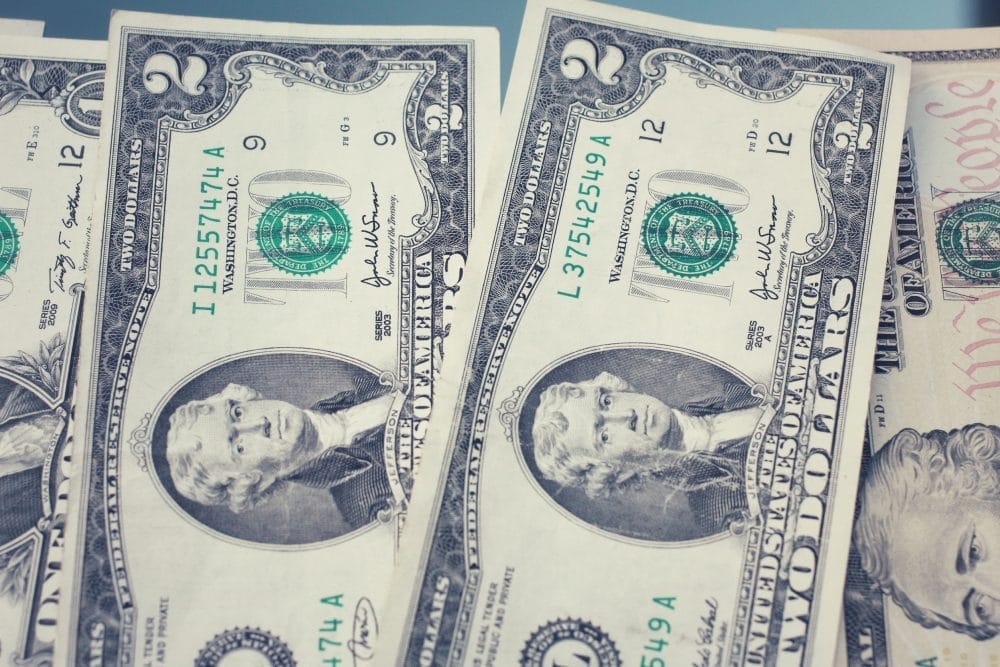Money may be universal, but the way families talk about it, treat it, and pass down beliefs about it can feel almost mythical. Generations often hand over financial wisdom wrapped in superstition, half-truths, and quirky rituals. Some of these ideas stick because they sound harmless, while others linger because they tap into deep cultural traditions.
But whether they hold water or not, these beliefs shape the way people save, spend, and stress over their wallets. Here are eight of the strangest money beliefs families pass down, and why they’re as fascinating as they are funny.
1. Always Keep a $2 Bill for Good Luck
For many families, a crumpled $2 bill tucked in a wallet is considered more charm than currency. So, parents warn against spending it, insisting that it attracts more money when left untouched. Some even hand them down at graduations or weddings like financial amulets. The belief blends nostalgia with superstition, turning an uncommon piece of paper into a symbol of prosperity. And whether it works or not, the story behind the bill often feels richer than the cash itself.
2. Never Whistle Indoors or Money Will Fly Away
In some households, whistling indoors is a guaranteed way to “whistle away” fortune. The sound is thought to push wealth right out the door, leaving the family coffers lighter. Parents often scold children for breaking into a tune, not because of noise, but out of fear for the family’s bank balance. This odd superstition is common in Eastern Europe and parts of Asia, where it’s taken seriously even today. It makes a catchy habit feel like a costly mistake.
3. A Spider in the House Means Money is Coming
Few things spark panic like a spider crawling across the floor, but some families treat it as a reason to celebrate. Spotting one indoors is said to signal incoming cash, whether through luck, opportunity, or surprise income. Parents might warn kids not to squash it, insisting that doing so kills the financial blessing. The connection likely came from the spider’s skill at weaving webs, symbolic of wealth and creation. In this belief, the more legs, the merrier the bank account.
4. Hand-Me-Down Wallets Should Always Have Cash Inside
It’s common in many cultures to give a wallet as a gift, but tradition insists it should never be empty. Passing down a wallet with at least a small bill inside is meant to ensure that wealth keeps flowing. Families often treat it as a way of “seeding” the wallet, planting financial abundance for the future. It’s less about the money inside and more about the energy of giving plenty.
5. Sweeping After Sunset Sweeps Away Wealth
Across Asia and Latin America, sweeping floors after sunset is practically forbidden. Parents warn that the broom doesn’t just clear dust, it pushes money out of the home. Families take this rule seriously, sometimes even letting crumbs linger until morning just to be safe. The belief connects household chores with prosperity, tying daily habits to financial well-being. It’s one of those rules that sticks not because it’s logical, but because it’s hard to shake off childhood warnings.
6. Money on the Table Brings Trouble
Placing money directly on the dining table is a no-go in some families, believed to stir arguments or financial setbacks. The table is seen as a place of nourishment and community, not transactions. Mixing cash with meals is thought to contaminate both wealth and relationships. Parents often frame it as respect for the home, blending etiquette with economic superstition. It’s a small gesture that shows how money beliefs often overlap with cultural rituals around food and family.
7. Always Pick Up Loose Change on the Street
Moving on, to some people finding coins on the ground is treated as more than just a lucky day—it’s practically a divine sign. Some families insist that leaving coins behind means rejecting a blessing. Even pennies are pocketed, with the idea that small gains add up to bigger ones. Parents often use this belief to teach kids about the value of money, no matter the amount. What starts as superstition sometimes becomes the first step in building financial mindfulness.
8. Don’t Lend to Friends on a Monday
Mondays are considered the worst time to lend or borrow money, according to some people. Families pass down the belief that starting the week with a loan sets the tone for financial struggles ahead. Because of that, some parents warn that the debt will drag on endlessly, straining both wallets and relationships. This rule turns timing into a tool for protecting financial health, even if it has no real-world basis. It’s less about logic and more about the comfort of structure in money matters.
The Stories We Carry About Money
So, strange money beliefs may sound quirky, but they reveal how deeply culture, tradition, and family values influence financial habits. Some are playful, some are protective, and some are just plain puzzling. And whether followed to the letter or simply laughed off, they shape the way people relate to wealth in powerful ways.
Which of these money beliefs have shown up in your family, and do you follow them or leave them in the past?
You May Also Like…
8 Shocking Ways Rich vs. Poor Spend Money Differently
10 Things Wealthy Families Teach Their Kids About Money That Others Don’t
Why Do Some Families Fall Apart Over Small Inheritances?
Why Do Some People End Friendships Over Money?
8 Estate Planning Habits That Can Spark Family Lawsuits







